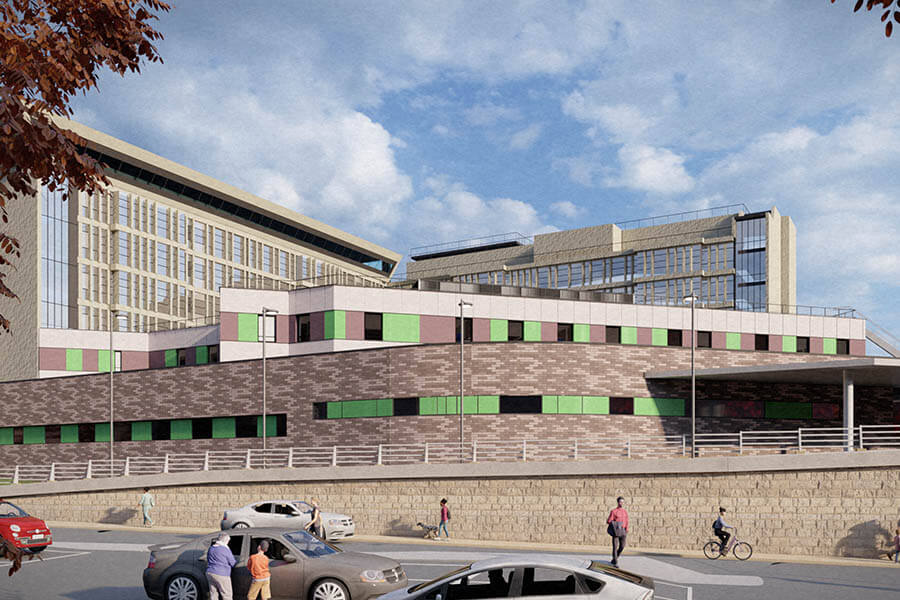
Ask the Architect Blog Series #3: With Paul Rushton, Architectural Design Manager at MTX
Paul Rushton is an Architectural Design Manager who works on healthcare projects as part of the MTX team.
An architect by discipline Paul has worked in the healthcare sector for more than 30 years. A former director of Cheshire-based architectural practice Taylor Young, Paul has huge experience in the healthcare sector and for the last eight years designed and project managed Proton Beam and Cancer Centres across USA and mainland Europe.
When did you first encounter MTX?
I first worked with MTX 20 years ago representing the client on what was then the company’s biggest healthcare scheme. I have always found working with MTX simple and straightforward – which is a rarity in the construction industry. They have extensive experience and expertise and use those intelligently to benefit clients and their projects. I appreciated that when I was on the client side, and now I appreciate it even more working for MTX.
What is your role now for MTX?
I suppose I am a ‘gamekeeper-turned-poacher’ – working for the contractor but with a primary focus on devising the best route to meet the client’s requirements. I work with the MTX in-house team of healthcare design professionals who interface with the client’s clinical leads and at the same time manage their supply chain teams, to give the best design advice balanced with the most pragmatic and cost effective guidance.
How important is the RIBA 0-1 pre-construction service offered by MTX?
The availability of pre-construction services within the MTX project package is a useful tool for clients which do not have the resources or funds available to undertake this work at the start of a project. Without that initial groundwork the project cannot progress or attract Government funding, but there is always a risk that the initial investment will be wasted if the project does not go ahead. MTX shares that risk by partnering with the client from day one and making available their in-house expertise at zero cost.
There are also significant advantages in engaging with the MTX pre-construction team for the design of a new building. Because they are also the delivery company the client can be confident that the building will be designed from the outset with modern methods of construction and modular build as the original concept. That in turn can mean a faster and more cost effective outcome is more likely to be achieved without compromise on quality.
The concept and content of the build programme is therefore informed by the vast experience of MMC that is inherent within the MTX offering to clients.
What is different about the way MTX works?
Intelligence runs through the MTX design and construction process which enables the two sides – client and contractor – to better understand one another and it encourages a genuine and open dialogue. My wide experience in the healthcare sector means I can add significant value for MTX. For example, I take the lead on areas such as security strategies and deal directly with the client in an advanced design role. That protects the design team from getting bogged down in this sensitive area and it saves MTX, the project and the client time and money.
How important is an understanding of design?
Design intelligence is hugely important. In most cases, designers design and contractors build, but the wealth of experience and design knowhow within MTX means that the team can respond quickly and intelligently to design issues, to educate, inform, advise and guide the client on decisions they need to make.
What are the benefits of that design intelligence?
With MTX the client avoids the sort of restrictive design approach which can affect early thinking. Meaningful conversations begin at concept stage and enable MTX to assist with developing early scheme elements like the schedule of accommodation, and consideration of the infrastructure requirements; for example, is there adequate electrical capacity, or drainage infrastructure?
It makes the process of cost and design quite rapid, and speeds up the construction process because the company building the new unit is also the designer, and that experience and practical knowledge informs the design.
Working for MTX I also see myself as an advocate for the client. My role as a self-employed specialist is slightly different because I know every action is not just a reflection of MTX, it also reflects my professionalism. I only give the service I would expect to receive, and the service I would be happy to get.

